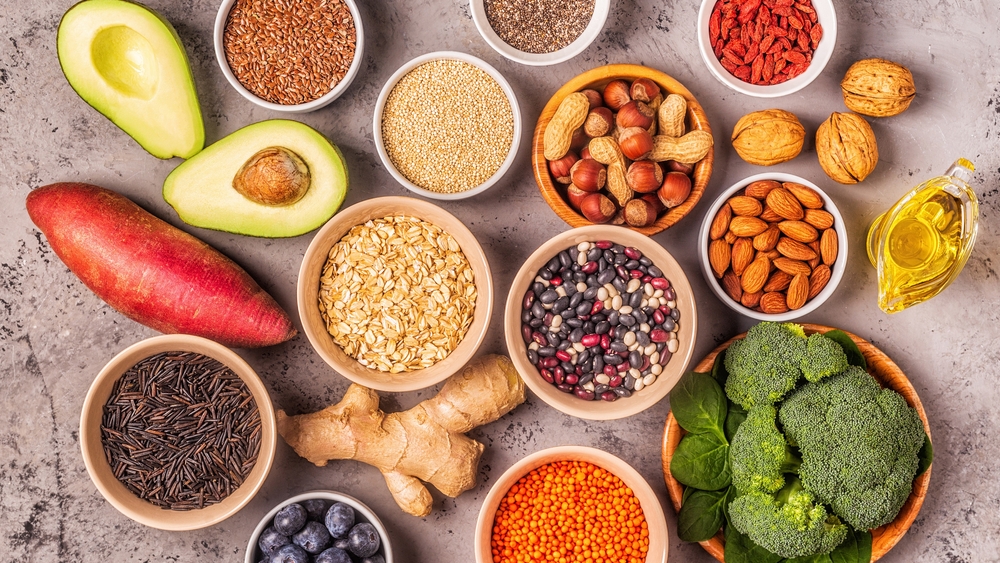The Role of Superfoods in a Healthy Diet
Table of contents

Understanding the Concept of Superfoods
Superfoods have become a buzzword in the world of health and nutrition. But what exactly qualifies as a superfood? The term generally refers to nutrient-rich foods considered to be especially beneficial for health and well-being. Superfoods are packed with vitamins, minerals, antioxidants, and other essential nutrients that are essential for maintaining a healthy diet. They often include fruits, vegetables, grains, proteins, and fats that provide a dense amount of nutrition in a small serving.
Superfoods like kale, blueberries, and salmon have gained popularity due to their high nutritional value and health benefits. These foods are known to enhance the immune system, boost energy levels, and improve overall health. By incorporating superfoods into your diet, you can help reduce the risk of chronic diseases and promote longevity.
The role of superfoods in a healthy diet cannot be overstated. They provide essential nutrients that support bodily functions, increase energy levels, and improve mental clarity. Superfoods are also an excellent way to diversify your diet and ensure you get a wide variety of nutrients from different food sources.
Top Superfoods to Incorporate into Your Diet
Adding superfoods to your diet can be simple and delicious. Some of the top superfoods include berries, leafy greens, nuts, seeds, and fish. Berries like blueberries and strawberries are high in antioxidants and fiber, which help combat oxidative stress and maintain digestive health. Leafy greens such as spinach and kale are rich in vitamins A, C, and K, essential for bone and eye health.
Nuts and seeds, like almonds and chia seeds, are excellent sources of healthy fats, protein, and fiber, which contribute to heart health and weight management. Fish, particularly fatty fish like salmon and mackerel, are packed with omega-3 fatty acids, which are crucial for brain health and reducing inflammation.
Incorporating these superfoods into your diet can be as simple as adding berries to your morning oatmeal, snacking on nuts, or having a salad topped with seeds. Not only do these foods taste great, but they also provide a significant nutritional boost that supports a healthy lifestyle.
The Science Behind Superfoods and Health Benefits
Research has shown that superfoods can have a profound impact on health. The high concentration of antioxidants in superfoods helps neutralize free radicals in the body, reducing oxidative stress and decreasing the risk of chronic diseases such as heart disease, cancer, and diabetes. These antioxidants are also linked to better skin health, improved memory, and reduced signs of aging.
Moreover, the fiber found in superfoods like whole grains and legumes contributes to digestive health, promotes feelings of fullness, and aids in weight management. Superfoods are also known to boost the immune system, thanks to their high levels of vitamins and minerals like vitamin C, zinc, and selenium.
Studies have shown that individuals who regularly include superfoods in their diet have lower rates of chronic diseases and experience improved overall health. The inclusion of superfoods in a balanced diet supports the body’s natural defenses and enhances mental and physical performance.
How to Effectively Integrate Superfoods into Your Daily Routine
Integrating superfoods into your diet doesn’t require a complete overhaul of your eating habits. Start by making small changes, like swapping out less nutritious foods for superfood alternatives. For example, replace white rice with quinoa or add avocado slices to your sandwich instead of mayonnaise.
Smoothies are an excellent way to incorporate multiple superfoods into one meal. Blend spinach, berries, flaxseed, and yogurt for a nutrient-packed breakfast or snack. Another easy approach is to use superfoods as toppings for salads, soups, and cereals.
Meal planning can also help ensure you’re eating a variety of superfoods throughout the week. Create a weekly menu that includes a variety of fruits, vegetables, nuts, and fish. By planning your meals, you can make sure you’re getting a balanced intake of the nutrients your body needs.
Conclusion
Superfoods play a crucial role in maintaining a healthy diet and promoting overall well-being. By including various superfoods in your daily meals, you can enhance your nutrient intake, improve your health, and reduce the risk of chronic diseases. The key is to incorporate these foods into your diet in a balanced and sustainable way, ensuring you enjoy both their health benefits and their delicious flavors.
FAQs About Superfoods
What are superfoods?
Superfoods are nutrient-rich foods known for their exceptional health benefits. They are typically high in vitamins, minerals, and antioxidants.
Why are superfoods important in a diet?
Superfoods are important because they provide essential nutrients that support health, boost energy levels, and reduce the risk of chronic diseases.
Can superfoods help with weight loss?
Yes, many superfoods are high in fiber and low in calories, which can help with weight management by promoting fullness and reducing hunger.
Are all healthy foods considered superfoods?
Not all healthy foods are considered superfoods. Superfoods are specifically noted for their high nutrient density and exceptional health benefits.
How often should I eat superfoods?
Incorporating a variety of superfoods into your diet on a daily basis is ideal. Aim to include different types of superfoods at each meal for balanced nutrition.








